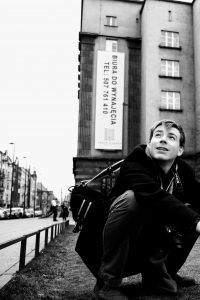We live in a world, that, to put it mildly, is less than kind at times. As the days go by, we may well feel poked, prodded, or just, simply, wronged. I’m sure we can all relate, I mean it’s hard to go through a year, let alone a day, without something being irksome. With all these pains, worries and injustices, who wants to open themselves to others, to be vulnerable; it may be the last thing on your list of things to do. Yet, we know great things can come from being vulnerable—think of the journeys we make to foreign places, the personal conversations we find ourselves in, or, simply, the unexpected events that life throws to us; it’s not all bad. In fact, how would we grow as people, as individuals, as a community, without being vulnerable to something, someone, or the world at large (or, without some other thing being vulnerable to us?).
Vulnerable Life
In our world, being vulnerable is not only part of daily life, but also part of the practice of being a writer. Being vulnerable in life is as vital as it is in being able to write well; why then do we worry about opening up, about sharing our deepest thoughts and feelings when we witness not only the pain such experiences bring, but also the positivity. You are vulnerable, I am vulnerable, together it is inescapable.
Ours, however, is a society where vulnerability is wedded to a certain weakness. Gender stereotypes and general prejudice abound when considering the baggage that comes with being vulnerable. We don’t know our teacher but we know that, if you want success, or to be a leader, you have to toughen up and close the world off: just be ‘you’, a promethean character, we are told. This “fear of vulnerability” is a pathology, not just for us as social beings, but as writers; seriously, who likes writing that is closed to the world? Who is moved by writing that is ironclad, fortress-like, cold and closed?
Being Vulnerable and Using vulnerability
To feel the connection between vulnerability and authenticity is not novel, nor is noticing the power vulnerability has to move people and change yourself. What makes for moving stories, for moving writing, is vulnerability to your audience. Turning towards the need to be vulnerable in writing isn’t simply about being personal; it is about being open to the world as a wider life practice. While, usually, being vulnerable means we have to be ‘deep’, it doesn’t have to be; maybe being vulnerable happens in small ways, with small steps rather than deep plunges. It is time to embody the vulnerability that makes your writing alive to the world and all that happens in it. We must start by asking ourselves, which writing is not vulnerable to us, as readers?
Critically, vulnerability isn’t just a useful rhetoric practice, a deployment of pathos: it is but a part of living. Here, Brené Brown, distinguishes ‘using’ vulnerability and ‘being’ vulnerable; as Jane Harkness says “there is a stark difference”. The point for us, the laypeople, is that being vulnerable in and with our writing is about opening a space for dialogue, a space where we can write, think and be together, where we can grow, and, as Haraway says, “stay with the trouble”.
Being Vulnerable with Others
But how can we learn to be vulnerable in and with our writing? Here are some steps we can take:
- Be honest and trusting (we aren’t escaping being vulnerable to the world any time soon, trust that others are there for you)
- Do writing exercises (small essays, little scribbles, anything that isn’t too serious) – share it with others; de-escalate the fear you have of the experience
- Visit writing centres, us included (engaging with professionals may help depersonalise the whole experience)
We are not immune to being vulnerable, we need vulnerability for our writing to be itself, even if we are not of a literary mindset. We need vulnerability to be willing to change ourselves, and our writing; we need vulnerability to be willing to listen to the comments, thoughts, and criticisms others have of what we say. So, whoever you are, remember that good writing isn’t closed and invulnerable; it is there to be open, ready to reveal itself to world. I’m ready to be open to the world, are you?
About the Author:
Hey, I’m Luke, a masters student in Political Science with a Concentration in Cultural, Social, and Political Thought at the University of Victoria; I am working to work out what I am actually working on. I completed my undergraduate in the UK with a year abroad of study in Munich, Germany. Now, I find myself acting as the Teaching Assistant Consultant for Political Science, an International Teaching Consultant, and as a Graduate Student Tutor at the Centre for Academic Communication.
